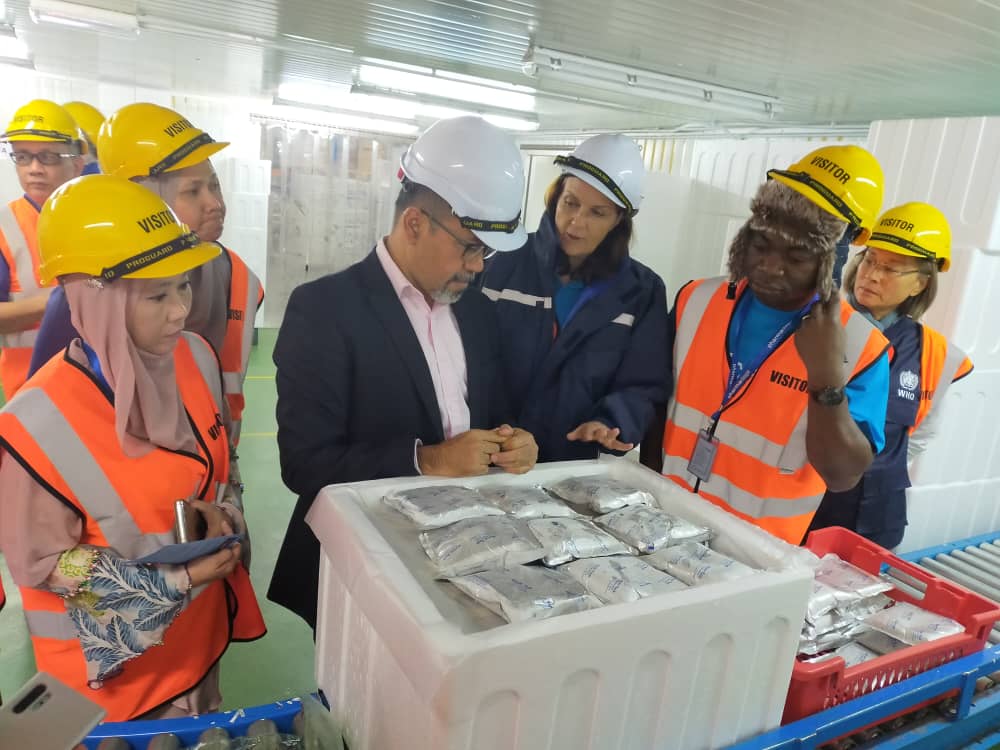KUALA LUMPUR, April 24 – The World Health Organization (WHO) and Unicef have expressed concern about the disruption of vaccination services during the Covid-19 pandemic.
Both United Nations (UN) bodies noted that in February, Malaysia’s Ministry of Health (MOH) received 2.5 million doses of polio vaccine that were scheduled for delivery to over one million children below 13 years old in Sabah, as part of MOH’s targeted polio immunisation campaign when the preventable disease broke out in Malaysia late last year, 19 years after Malaysia was declared polio-free in 2000.
“This polio immunisation campaign has been interrupted, in compliance with the national movement control order (MCO), but it is crucial that efforts are made to resume and strengthen immunisation activities as soon as physical distancing measures are lifted,” WHO and Unicef said in a joint statement today.
Malaysia recorded its fourth polio case last month, involving a three-year-old boy in Sandakan. All four polio cases were detected in Sabah, three of which were foreign national children who had never been vaccinated for polio.
MOH said last month that the Sabah polio immunisation campaign, which started last December 27, involved giving two doses of the bivalent oral polio type 1 and 3 vaccine (bOPV) and two doses of the monovalent oral polio type 2 (mOPV2) vaccine to each child below 13 in the state. As of March 8, a total of 517,038 children were given the first dose of bOPV vaccine, while 206,972 children had received the second dose of bOPV vaccine.
The mOPV2 vaccine was scheduled to be administered from the middle of last month, but it is unknown if this had been carried out after Malaysia imposed the nationwide MCO on March 18.
“There are many impacts of Covid-19, including the possible resurgence of diseases that can be prevented with safe and effective vaccines,” said Dr Lo Ying-Ru, WHO Representative for Malaysia, Brunei Darussalam and Singapore, in today’s statement.
“It is essential to ensure access to immunisation services during Covid-19, and all parents to continue to bring their children to be fully vaccinated against polio and other vaccine-preventable diseases.”
WHO guidelines urge that countries give importance to routine immunisation of children and classify them as essential service delivery, as well as vaccinations for groups most-at-risk.
“If immunisation services must be suspended, urgent catch-up vaccinations should be rescheduled as soon as possible, prioritising those most at risk,” said the statement.
In a statement today, Health director-general Dr Noor Hisham Abdullah asserted that MOH’s immunisation programme in health facilities is running as usual.
“Parents are advised to adhere to the immunisation schedule and date of appointment set by health workers. Avoid missing out of immunisation for infants and children,” he added.
Marianne Clark-Hattingh, Unicef Representative in Malaysia, said the poorest and most marginalised children who needed immunisation the most would continue to be the least likely to get it.
“Most of the unvaccinated children live in remote rural locations or with undocumented, refugee, migrant or stateless families. Disease does not discriminate, and neither should interventions. Every child, no matter their status, has the right to be immunised,” she said in the statement.
The statement also added that the Covid-19 pandemic is an example of the severity of a disease when no immunisation is available.
“The Covid-19 pandemic reveals what is at stake, and how fast an outbreak can spread, when communities do not have the protective shield of immunisation against an infectious disease.
“While no vaccine exists yet for Covid-19, the world has effective and safe vaccines for other serious and highly contagious diseases like measles, polio or diphtheria. While taking appropriate measures to prevent the spread of Covid-19, we must make efforts, where possible, to ensure that children are up-to-date with their vaccination schedule.”
In 2018, 86 per cent of children under the age of five globally received vaccinations for diphtheria, tetanus and pertussis as well as for measles. This number has increased from 72 per cent in 2000 and 20 per cent in 1980.
The statement also said that the number of children paralysed by polio has been reduced by 99.9 per cent worldwide.
“Yet, global vaccination coverage is still far from the 95 per cent coverage needed to fully protect communities against outbreaks of vaccine-preventable diseases. Roughly, 13 million of the children have never received any vaccines, putting them and their communities at risk of disease and death.
“Measles continues to remain an ever-present threat, especially if vaccination rates drop. Current projections indicate that as many as 800,000 people may have been infected with the disease in 2019. In 2020 there are increasing concerns about another resurgence, especially if vaccination rates fall due to delay or suspension of scheduled immunisation activities as a result of Covid-19.”
World Immunisation Week runs from April 24 to 30 to raise awareness on the use of vaccines as protection from diseases.
“The theme this year is #VaccinesWork for All and the campaign will focus on how vaccines – and the people who develop, deliver and receive them – are heroes by working to protect the health of everyone, everywhere.”








